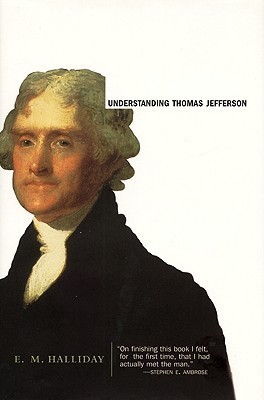What do you think?
Rate this book


Recent biographies of Thomas Jefferson have stressed the sphinxlike puzzles of his character--famous champion of freedom yet lifelong slaveholder, foe of miscegenation yet secret lover of a beautiful slave for 30 years, aristocrat yet fervent advocate of government by the people. E. M. Halliday's absorbing and lucid portrait recognizes these and other puzzles about this great founder, but shows us how understandable they can be in light of his personal and social circumstances.
Halliday takes readers deep into Jefferson's private life--exploring his childhood, his literary taste, and his unconventional religious thinking and moral philosophy. Here, too, are his adamant opinions on women, the evolution of his ideas on democracy and freedom of expression, and fresh insights into his relationship with Sally Hemings.
304 pages, Kindle Edition
First published January 1, 2001